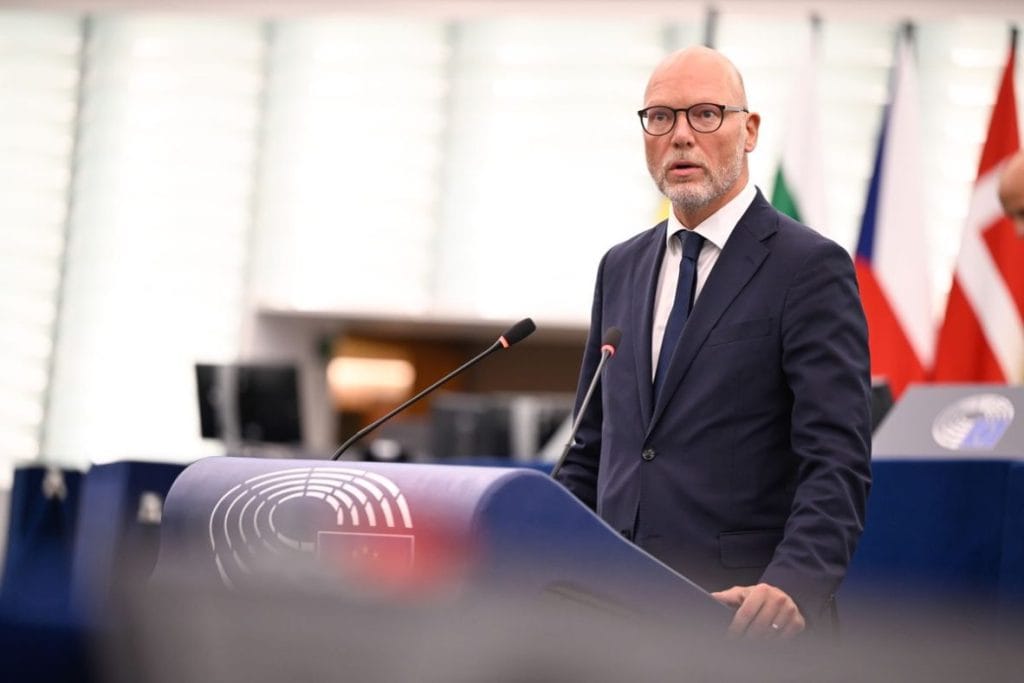EU Parliament Rejects Omnibus Deal to Ease Sustainability and Due Diligence Rules

- European lawmakers voted 318 to 309 to reject the Omnibus simplification package that would have cut reporting and due-diligence requirements.
- The secret ballot revealed deep divisions within the centrist coalition backing the European Commission’s plan.
- The rejection delays talks with EU governments and adds uncertainty for companies preparing for CSRD and CSDDD compliance.
What was rejected
The European Parliament has narrowly rejected a compromise on its negotiating position for the European Commission’s Omnibus I package — a proposal aimed at simplifying and reducing corporate reporting and due-diligence obligations across the EU’s sustainability framework.
The vote (318 against, 309 in favour, 34 abstentions) sends the initiative back to the Parliament’s committees and postpones planned talks with the Council and Commission.
What Omnibus I proposed
Introduced in February 2025 under the Commission’s “simplification agenda,” Omnibus I sought to boost competitiveness by cutting reporting burdens on businesses.
It proposed broad changes to the Corporate Sustainability Reporting Directive (CSRD), the Corporate Sustainability Due Diligence Directive (CSDDD), the EU Taxonomy, and the Carbon Border Adjustment Mechanism.
For the CSRD, the package would have raised the threshold for reporting from 250 to 1,000 employees and added a €450 million revenue limit — removing around 80 percent of companies from scope.
For the CSDDD, it retained the 1,000-employee cut-off initially adopted in May 2024 but shifted the focus of due diligence to direct business partners and capped data requests to smaller suppliers.
Why the deal collapsed
The centre-right European People’s Party (EPP) had brokered a compromise with Socialists and Democrats (S&D) and Renew Europe to preserve the Commission’s main simplifications while avoiding deeper cuts demanded by the far right.
However, the agreement fractured when a portion of S&D lawmakers and several Renew members defected in the secret ballot.
Both Greens and The Left voted against, arguing that the changes would undermine Europe’s sustainability framework, while the ECR and Patriots for Europe groups opposed the text for not going far enough to ease business rules.
Political reactions
EPP rapporteur Jörgen Warborn said after the vote that the outcome “clearly shows businesses need clarity now” and urged lawmakers to “move forward as soon as possible.”
Parliament President Roberta Metsola remarked that the result proved the compromise “did not go far enough for some, and too far for others.”
Greens MEP Kira Marie Peter-Hansen called the rejection “a success for democracy,” adding that Parliament “is not ready to rubber-stamp a deal that weakens Europe’s sustainability framework.”
What happens next
Because the EU Parliament rejects Omnibus deal, lawmakers must now draft a new position and vote again at the plenary session in Brussels on 13 November 2025.
Under Parliament’s Rules of Procedure (Article 72 § 3), amendments to the file will be tabled and voted on before trilogue negotiations with EU governments can begin. The Council already adopted its position on 23 June, and the institutions still aim to finalise the legislation by the end of 2025.
Until a final agreement is reached, companies preparing for CSRD and CSDDD compliance continue to face uncertainty about the final reporting thresholds and due-diligence scope.












